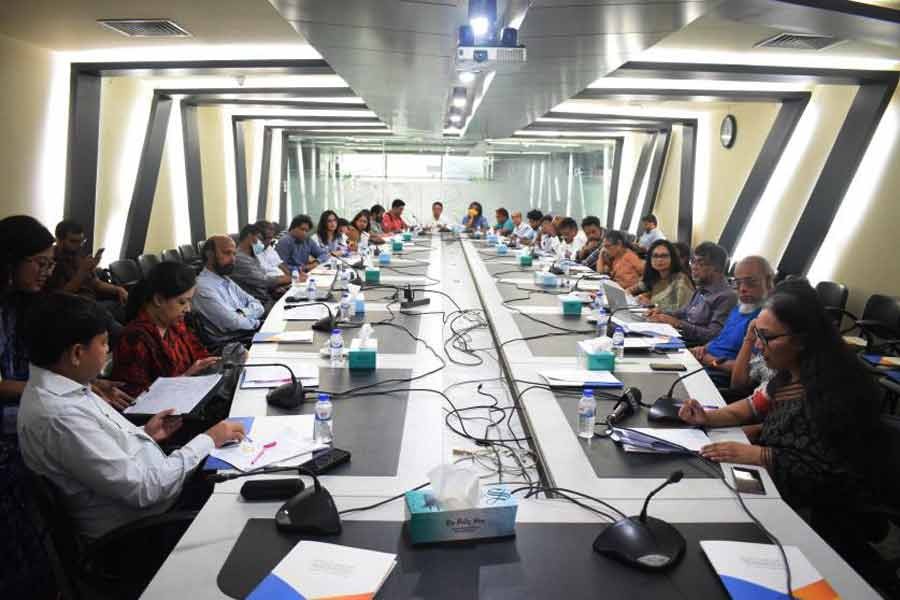Speakers at a pre-budget dialogue organised by Bangladesh Health Watch and Unnayan Shamannay have said health sector allocations in the national budget must aim to reduce the share of out-of-pocket expenditure in the total health expenditure.
Highlighting the necessity to move beyond ‘business as usual’ allocations for the health sector, they pointed out that out-of-pocket expenditure by the people constitutes 68 per cent of the total health expenditure of the country.
“The government bears only 23 per cent of the total health expenditure,” the speakers noted.
Bangladesh Health Watch, Brac James P. Grant School of Public Health, BRAC University, and Unnayan Shamannay arranged the dialogue jointly in Dhaka on Monday, according to a press release.
Members of Parliament (MPs) Habibe Millat, Rumin Farhana and Shamim Haidar Patwary joined the event. Dhaka University Professor Dr Syed Abdul Hamid was present as an expert discussant.
At the beginning of the session, Unnayan Shamannay Chair and former Governor of Bangladesh Bank Professor Dr Atiur Rahman presented the keynote paper. The session was moderated by Dhaka University Professor Dr Ruaman Haque, who is also the Chair of the thematic group of Bangladesh Health watch.
The press release said the keynote paper was developed based on data from the government’s Finance Division and the findings from a recent field survey.
Atiur Rahman pointed out that the share of the out-of-pocket cost can be brought down from 68 per cent to 51 per cent by tripling the allocations for the medical and surgical supply sub-sector of the health budget and by filling up all the vacancies at the Upazila health complexes, union health sub-centres, and community clinics.
He said the policymakers should focus on revamping the entire health sector to ensure access to quality healthcare, going beyond just increasing allocations.
Lawmaker Habibe Millat, in his remarks, said the health sector should have medium to long-term national planning documents, such as the five-year plans of the government.
Rumin Farhana suggested initiating a universal healthcare scheme like Bhutan and India.
Shamim Haider Patwary said the government should for building partnerships with private sector healthcare providers to ensure quality healthcare for all the people.
Other speakers raised some other issues such as prioritising primary healthcare, quality control of the private healthcare providers, gender-responsiveness of the health budget, sexual reproductive healthcare, etc.


